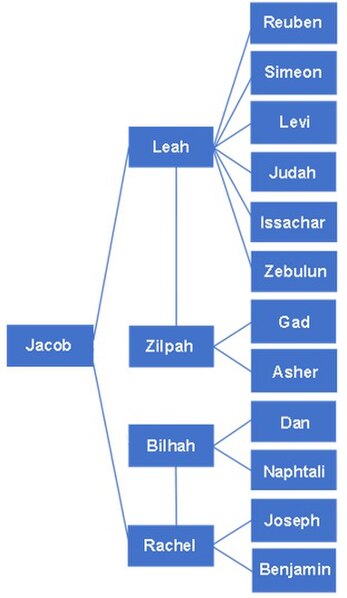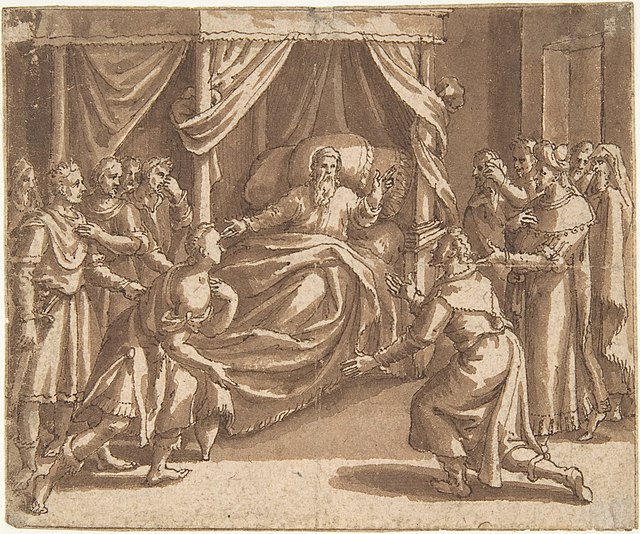The Tribe of Joseph is one of the Tribes of Israel in biblical tradition. Since the tribes of Ephraim and Manasseh together traditionally constituted the "tribe of Joseph", it was often not listed as one of the tribes, in favour of Ephraim and Manasseh being listed in its place; consequently it was often termed the House of Joseph, to avoid the use of the term tribe. Even though Ephraim and Manasseh were Joseph’s sons, they were considered heads of two of the twelve tribes of Israel because Joseph’s father, Jacob, adopted Ephraim and Manasseh as his own sons.
Synagogue in Bnei Brak with the name of Joseph and his symbol, a sheaf of wheat.[citation needed]
The Twelve Tribes of Israel are, according to Hebrew scriptures, the descendants of the biblical patriarch Jacob, who collectively form the Israelite nation. The tribes were through his twelve sons through his wives, Leah and Rachel, and his concubines, Bilhah and Zilpah. In modern scholarship, there is skepticism as to whether there ever were twelve Israelite tribes, with the use of the number 12 thought more likely to signify a symbolic tradition as part of a national founding myth, although some scholars disagree with this view.

Mosaic depicting the twelve tribes and their Hebrew names, with symbolic images. Asher: a tree Dan: Scales of justice Judah: Kinnor, cithara and crown, symbolising King David Reuben: Mandrake (Genesis 30:14) Joseph: Palm tree and sheaves of wheat, symbolizing his time in Egypt Naphtali: gazelle (Genesis 49:21) Issachar: Sun, moon and stars (1 Chronicles 12:32) Simeon: towers and walls of the city of Shechem Benjamin: jug, ladle and fork Gad: tents, symbolizing their itinerancy as cattle-herders
Parentage of Jacob's twelve sons, per Genesis 35
The dying Jacob blesses his twelve sons (Adam van Noort)
The twelve tribes of Israel camped around the tabernacle. (Jan Luyken, 1673)

![Synagogue in Bnei Brak with the name of Joseph and his symbol, a sheaf of wheat.[citation needed]](https://upload.wikimedia.org/wikipedia/commons/thumb/f/f8/Bnei_Brak_Yossef_wheat_sheaf.jpg/640px-Bnei_Brak_Yossef_wheat_sheaf.jpg)



